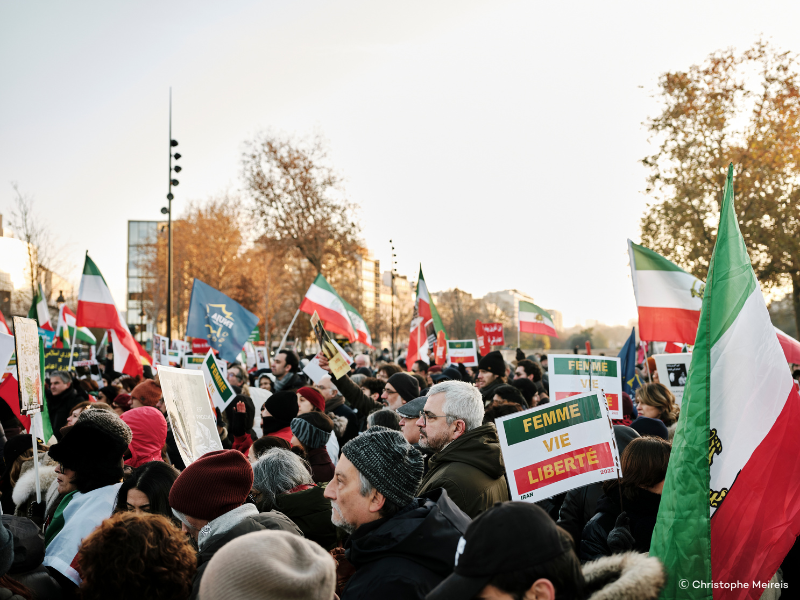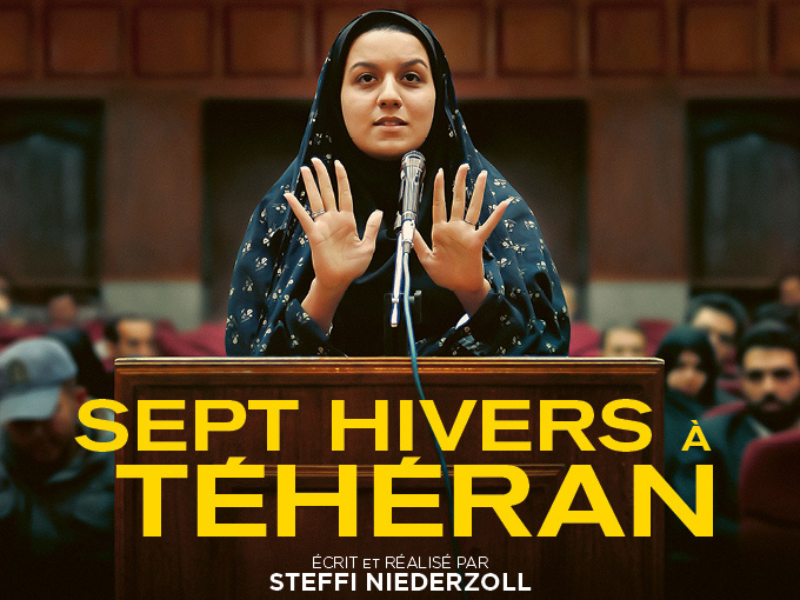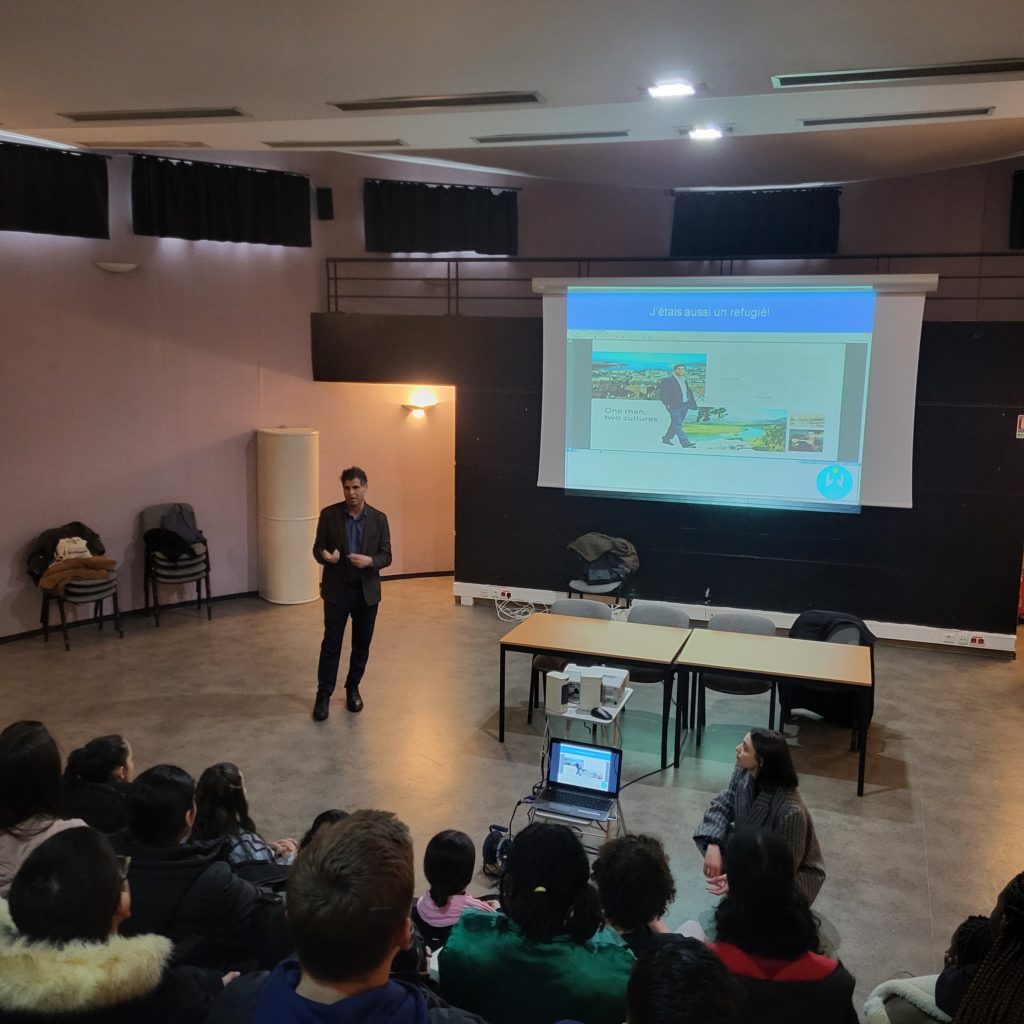
Context
Based on the Sharia law, the iranian penal sysytem is the one that ranks first in the world in terms of executions per capita.In 2022, over 500 death row inmates were executed in violation of international agreements ratified by Iran. Discriminatory charges related to the origin of the accused, drug trafficking or alcohol consumption do not fall into the category of the most serious crimes for which a death sentence could actually be imposed.
Educating youth on civil rights: an absolute necessity
“Why does it take two women to make a man in Iran?” or the bitter truth of the Islamic code, which an eighth grader questioned during the school. A message that needs to be contextualized and deconstructed through education on social issues. Educating for better prevention, is the mission of Solène Paloma, in charge of the project « Educating for the abolition of the death penalty » at ECPM.
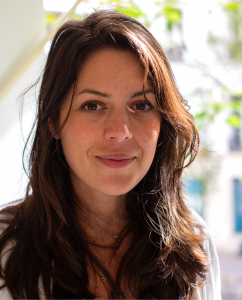
Nearly 500 young people received poignant and enlightening testimonials from two witnesses of this cruel and inhuman punishment in Iran, Shole Pakravan and Taimoor Aliassi; two activists against the death penalty, with very different life stories.
Some of them discovered in preview the documentary Sevent winters in Tehran by Steffi Niederzoll. This feature film tells the story of Reyhaneh Jabarri, sentenced to death at the age of 19, then executed for the murder of the man who was about to rape her. After becoming a symbol of the struggle for women’s rights in Iran, Reyhaneh’s fight is now carried by her mother, Shole Pakravan.
And it was with her that the young spectators had the chance to talk after the screening. Truly touched by Reyhaneh’s sad story, shocked by the injustice she has suffered and admiring the strength and courage of Shole, her mother, the students left the room speechless after an emotionally charged discussion. Some of them shyly approached Shole to hug her and thank her for this life lesson.
The ECPM teams then met with these young people in class to discuss their feelings and their understanding of the situation that Reyhaneh had faced. This exchange was an opportunity to talk more broadly about the application of the death penalty in the world today.
The other students met Taimoor Aliassi. Born into a Kurdish family in Iran, Taimoor left Iran after the 1979 revolution. Now a Swiss citizen, he founded the Association for Human Rights in Kurdistan of Iran-Geneva (KMM-G) in 2006 to promote democracy, respect for human rights and social development in Kurdistan of Iran and beyond. Taimoor exposed to the youth the reality of a repressive Iran where human rights and freedoms are violated; a country where the death penalty is used as a tool of political repression to contain popular uprisings and rule by fear.
The reactions were numerous for this young generation that is ultra-connected to the world. Ultimately, addressing the current situation in Iran through the prism of the death penalty has helped to raise awareness about many related topics. The students realized that some crimes punishable by death in Iran are no different than fundamental civil rights in France, such as the right to protest or consume alcohol. The difference in treatment between women and men also caught their attention: in Iran, a woman’s value is only half that of a man.
This thematic cycle fits perfectly into many areas covered by teachers, particularly in moral and civic education (EMC), as it raises reflections on freedom of expression, discrimination, inequality, etc.
The representations and preconceived ideas about the death penalty, which often focus on the worst blood crimes committed in the few democracies that practice it, are deconstructed and give way to informed and realistic debates.
In my opinion, ECPM has a genuine expertise to bring to young people in their understanding of current events and their vision of the world. Making them aware of capital punishment when it threatens 60% of the world’s population contributes to their questioning of global citizenship and the values of a world they wish to build.
Witness: Taimoor Aliassi, Representative to the United Nations of the Association for Human Rights in Kurdistan of Iran in Geneva (KMMK-G), and Vice President of Impact Iran
Is this the first time you have addressed such a young audience?
In France and on the topic of the death penalty, yes. It’s really interesting for me to confront the reality, the perception of the death penalty by young people and their knowledge of the subject. I think it is very important to arouse their curiosity at this age to help them form their opinion.
What struck you during these interventions?
I thought that at that age they would not be interested in discussing it, that it wouldn’t affect them… But as soon as we mentioned concepts such as the application of the death penalty for young women and girls, I felt a form of empathy on their part and it really touched me; even though this issue is very far from their reality here in Paris. This sense of empathy really moved me.
In your opinion, why is it important to testify to the younger generation?
To counterbalance the often violent speeches that can be seen on television or in the media. The death penalty is a subject that is no longer discussed in Europe, even though some states, such as Hungary, have expressed their desire to reintroduce the death penalty. Testifying is essential because the more the youth are aware and informed, the better we deal with the problems of violence in society. We must also not ignore the influence of public opinion in France towards countries that apply the death penalty.
Why did you decide to stand with the iranian people?
Because I myself come from Iranian Kurdistan. Iran is one of the most executing countries in the world, in proportion to its population. The death penalty is particularly targeted at ethnic and religious minorities and Iran is also one of the few countries that execute children. The number of executions is again increasing year after year. I am touched because my family and friends are in Iran and I myself know people who are in prison.
At first, I was not working specifically on the death penalty, I was working in general on human rights but since I knew ECPM, I became a little more aware of the issue of the death penalty. I started to open up and get involved in this field and started interviewing people on death row who were awaiting execution. It has become, despite myself, one of the causes for which I work today.
Once you obtained refugee status in Switzerland, can you tell us the story of your involvement in international advocacy?
At the age of 13/14 I had already survived one revolution and three wars. So I grew up in a context of revolution, of struggle… Several members of my family were opposed to the Islamic system in Iran and committed against the regime. At the age of 14, I wanted to change the world, I was an activist, anti-system, very revolted/rebellious against the system of our society, whether it was religious, patriarchal or other. So I was very committed from a very young age.
How did you manage to turn this anger into a productive fight?
I was 17 years old when a political party came to recruit young people to go fight against the Islamic clergy in Iran. There was another possibility which was to undergo teacher training. I had a brother and cousins who signed up to go and fight, but I chose the second path, more peaceful than the one of violence, which allowed me to teach them why they took up arms. From a very young age, I decided that the best way was to write, educate, raise awareness, reflect, inform and advocate.
Given your long-term partnership, what is your relationship with ECPM?
We are partners since 2010. I often represent ECPM at the UN in Geneva and in many meetings organized by the UN, the European Parliament or other. During conferences organized by the EU, Switzerland or a third party, there is always someone from ECPM speaking about the death penalty. I am invited to speak at ECPM activities at every conference, which I consider a privilege. It allows me to make new acquaintances and to have new networks. This collaboration is very important to us, as ECPM has a relationship with the world and we run a small NGO in Geneva. It is a window on the world.
Is there a final message that you would like to convey?
I’m glad to see that ECPM is focusing on educating young people, because youth is the future. It is a great thing to invest in youth.
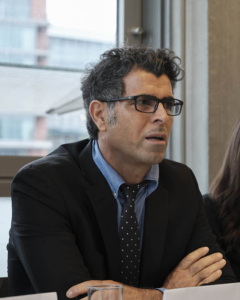
Taïmoor Aliassi is a Swiss citizen of Kurdish origin from Iran, a country he left after the 1979 revolution. He holds a Master of Advanced Studies in Humanitarian Action with a specialization in International Law from the Graduate Institute of Geneva (IHEID). He is the co-founder of KMMK-G, an association that promotes democracy, respect for human rights and social development in Kurdistan of Iran and beyond (member of Impact Iran).
Taïmoor Aliassi is driven by the will to fight against all forms of discrimination, especially against people from ethnic and religious minorities in the region, to advocate against the death penalty and to promote the rights of women and children.
